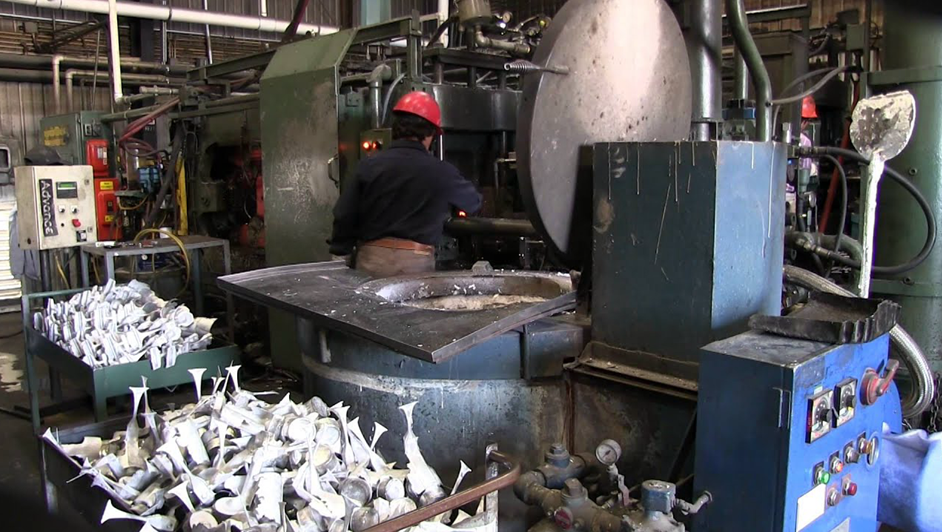Magnesium, a lightweight metal known for its high strength-to-weight ratio and excellent corrosion resistance, has garnered significant attention in recent years. Its unique properties make it an ideal choice for a wide range of applications, from automotive and aerospace industries to electronics and medical devices. In this article, we will explore the various advantages and challenges associated with magnesium casting, as well as its potential to revolutionize manufacturing processes.
Advantages of Magnesium Casting
1. Lightweight: Magnesium is the lightest structural metal, weighing approximately 35% less than aluminum and 75% less than steel. This characteristic makes it an attractive choice for industries looking to reduce weight and improve fuel efficiency.
2. High Strength: Despite its lightweight nature, magnesium possesses impressive strength properties. It has a high strength-to-weight ratio, making it suitable for applications that require both strength and lightness, such as aerospace components and sporting goods.
3. Excellent Machinability: Magnesium is known for its superior machinability. It is easy to cut, drill, and shape, allowing for intricate designs and complex geometries. This makes it a preferred material for manufacturing parts with intricate details.
4. Thermal Conductivity: Magnesium exhibits excellent thermal conductivity, making it an ideal choice for applications requiring heat dissipation. This property is particularly advantageous in the electronics industry, where devices generate high levels of heat.
5. Corrosion Resistance: Magnesium boasts exceptional corrosion resistance, especially in alkaline environments. This property ensures that components made from magnesium casting will maintain their integrity and longevity even in harsh conditions.
Challenges in Magnesium Casting
1. Flammability: One of the major challenges associated with magnesium is its flammability. Magnesium dust or shavings can ignite easily, posing a fire hazard. Thus, careful handling and proper safety measures are necessary during casting and machining processes.
2. Reactivity: Magnesium has a high reactivity with oxygen and moisture, which can lead to oxidation and degradation. To overcome this challenge, manufacturers employ various techniques, such as protective coatings and alloying, to enhance the material’s stability.
3. Limited Availability: Although magnesium is the eighth most abundant element on Earth, its extraction and production can be expensive. Furthermore, the limited number of foundries capable of casting large magnesium parts restricts its widespread use in certain industries.
Potential Applications
1. Automotive Industry: With the increasing emphasis on fuel efficiency and reduced emissions, magnesium casting offers a promising solution. The lightweight nature of magnesium can significantly contribute to reducing a vehicle’s weight, thereby improving fuel economy.
2. Aerospace Industry: Magnesium’s high strength-to-weight ratio and excellent machinability make it a valuable material for aerospace components. Its use in aircraft structures can reduce weight and enhance performance, leading to better fuel efficiency and increased payload capacity.
3. Electronics and Communication: The exceptional thermal conductivity of magnesium makes it an ideal material for heat sinks and electronic enclosures. As electronic devices continue to become smaller and more powerful, magnesium casting can help dissipate heat effectively, ensuring optimal performance and longevity.
4. Medical Devices: Magnesium’s biocompatibility and bioabsorbability make it suitable for medical applications. It can be used in orthopedic implants and surgical instruments, where its lightweight nature reduces strain on patients and improves overall comfort.
Conclusion
Magnesium casting has emerged as a valuable manufacturing technique, offering numerous advantages in terms of weight reduction, strength, machinability, thermal conductivity, and corrosion resistance. Despite the challenges associated with magnesium’s flammability, reactivity, and limited availability, ongoing research and technological advancements continue to unlock its full potential. As industries across the globe strive for innovation and sustainability, magnesium casting is poised to play a pivotal role in shaping the future of lightweight, high-performance materials.
-

- CNC machined parts & components
-

- Perumah adunan kuasa Magnesium aloi Thixomolding
-

- High precision magnesium alloy die casting parts for automotive ignition lock
-

- Bahagian&komponen die-casting aloi magnesium untuk e-basikal
-

- High precision magnesium thixomolding components laptop housing cover A
-

- parts&comopnents for bicycle suspension fork for MTB

 0086-750-5616188
0086-750-5616188 +86 13392089688
+86 13392089688 sales@zhongmei-tech.com
sales@zhongmei-tech.com









